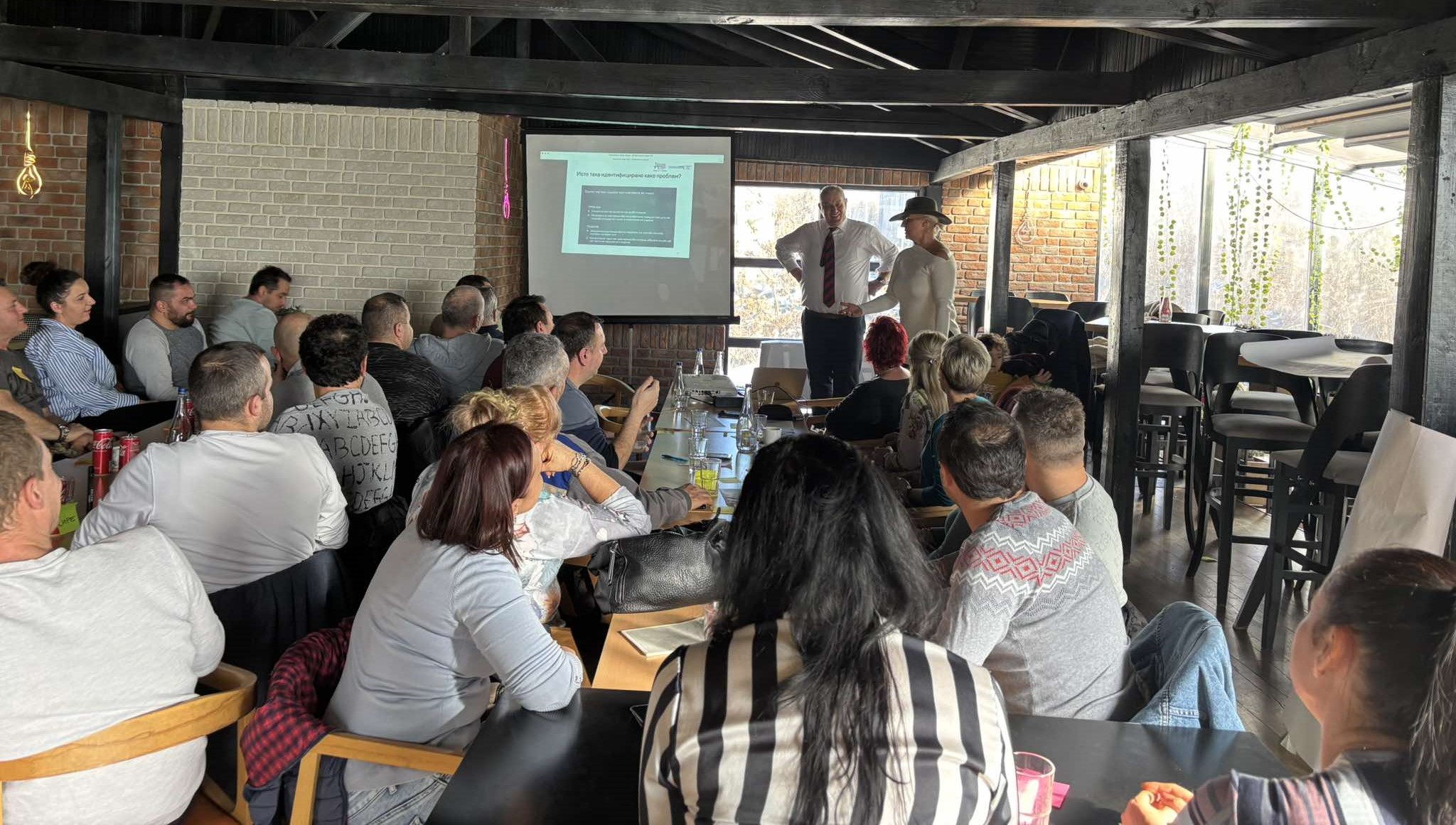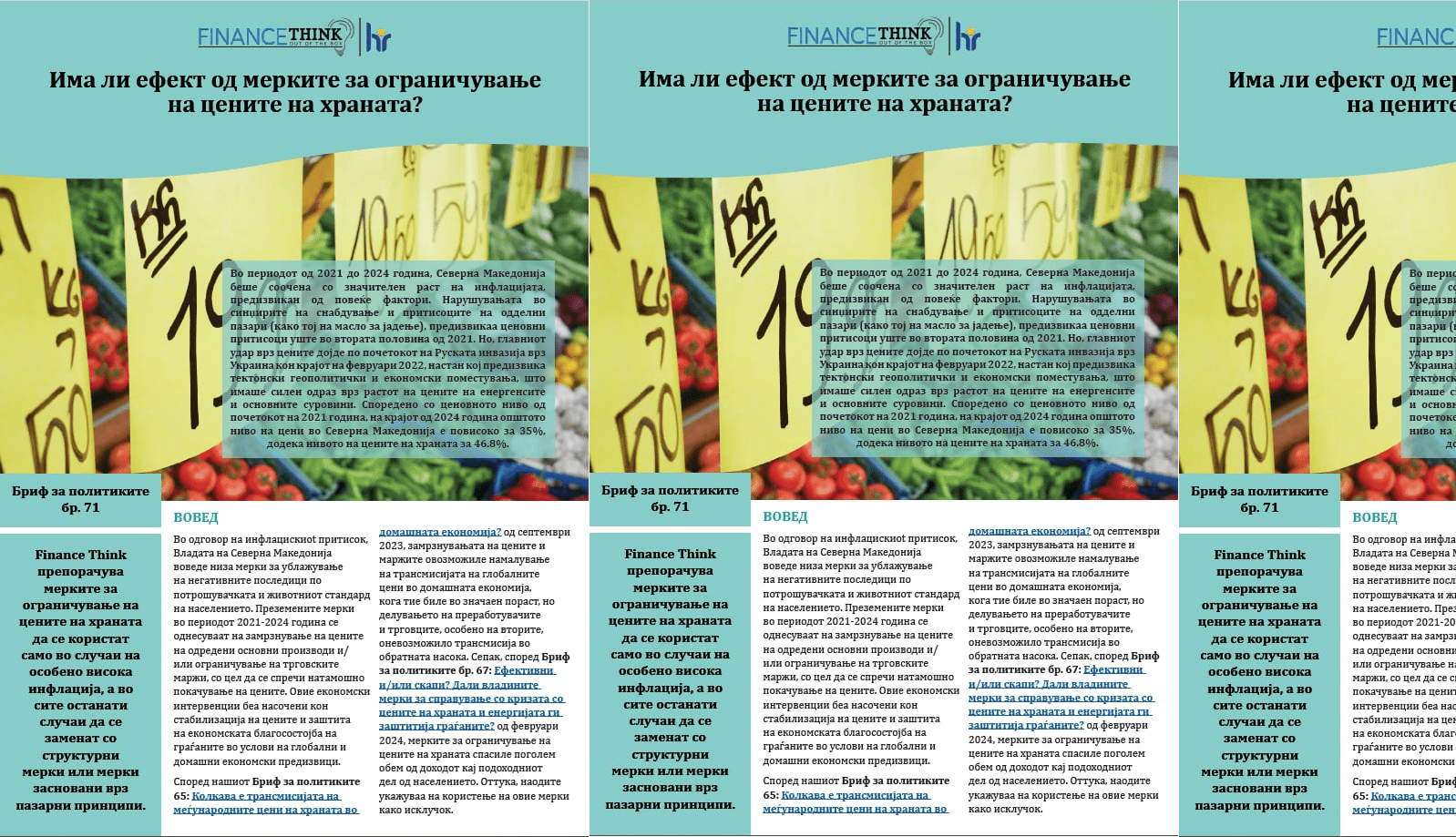Link.
Regional debate „After the energy crisis“
🗣 During the debate, we discussed how to become a more energy-resilient region, as well as the socio-economic implications of the green transition.
➡️ Stay tuned! In the coming period, we will organize another Regional Policy Debate, this time focusing on food security.
WEBecon Network SMART Balkans
🚀 The Program for Excellence and Personal Growth (PEPG) continues to thrive with success!
📅 On January 8, 2025, a group of mid-level managers from Comfy Angel attended a training session on improving workplace productivity.
👨🏫 The trainer for the session was Marjan Bojadziev, who shared critical tools and strategies for boosting productivity and managing conflicts in dynamic work environments, drawing on his expert advice and decades of experience.
#RandomizedControlledExperiment continues to be supported by the British Embassy Skopje. #WorkplaceProductivity #ProfessionalDevelopment #FinanceThink #ManagementTraining
Price and margin control measures stabilize inflation only in the first month, after which it returns
Between 2021 and 2024, North Macedonia faced significant inflation growth driven by multiple factors. Supply chain disruptions and pressures on specific markets (such as edible oil) caused price increases as early as the second half of 2021. However, the main price shock came after the Russian invasion of Ukraine at the end of February 2022, an event that triggered tectonic geopolitical and economic shifts, significantly impacting the prices of energy and essential raw materials. Compared to the price level at the beginning of 2021, by the end of 2024, the general price level in North Macedonia had increased by 35%, while food prices had risen by 46.8%.
In response to this inflationary pressure, the Government introduced a series of measures to mitigate the negative impacts on consumption and the living standards of the population. Between 2021 and 2024, measures included freezing the prices of certain basic products and/or limiting trade margins to prevent further price increases. A total of nine key decisions were made by December 2024, three of which targeted margin limitations, while the others focused on price controls. Some measures applied to specific food products, while others covered a broader range of food items.
The findings of the analysis show that price control measures for food had a mild aggregate effect and a strong immediate effect. During periods without such measures, the average month-on-month food inflation rate was 0.5%. Under these measures, food inflation averaged as low as -1%, indicating that food prices decreased during the intervention. Thus, the estimated effect is relatively significant. However, this effect diminishes after the first month of implementation (if the measure lasted longer than one month). This indicates that while the measures achieve their strongest expected effect on reducing food prices in the first month, the impact quickly weakens, likely due to market adjustments (e.g., rising prices of alternative products not covered by the measures).
Another finding suggests that price control measures only temporarily suppress inflation, as prices tend to increase again once the measure expires. Inflation returns almost entirely to its pre-measure dynamics, without evidence of overshooting.
Finance Think recommends that food price control measures be used only in cases of exceptionally high inflation. In all other situations, they should be replaced with structural or market-based measures, such as:
- Consistent and impartial enforcement of the Law on Unfair Trading Practices.
- Strengthening the capacity and tools of the Commission for Protection of Competition.
- Overhauling the agricultural subsidies system to increase domestic production.
- Targeted budget support for the most vulnerable segments of the population.
Read our latest 📖 Policy Brief 7⃣1⃣
Our latest 📖 Policy Brief 7⃣1⃣ answers the question: Do government #measures to limit food prices have an effect ⁉
1️⃣ Measures to limit food prices have a strong effect only in the first month of implementation, reducing inflation by up to -1%! 📉
2️⃣ After the first month, the effect dissipates due to market adjustments, such as increases in the prices of alternative products. ⚖️
3️⃣ Inflation returns to its previous dynamics immediately after the measures are lifted, but there is no overshooting. 🔄
4️⃣ Finance Think recommends using such measures only during periods of very high inflation. In other cases, structural and market-based measures are needed. 🛠️
🖇 Full brief: shorturl.at/KApmC
#Inflation #Prices #TemporaryEffect #FinanceThink





